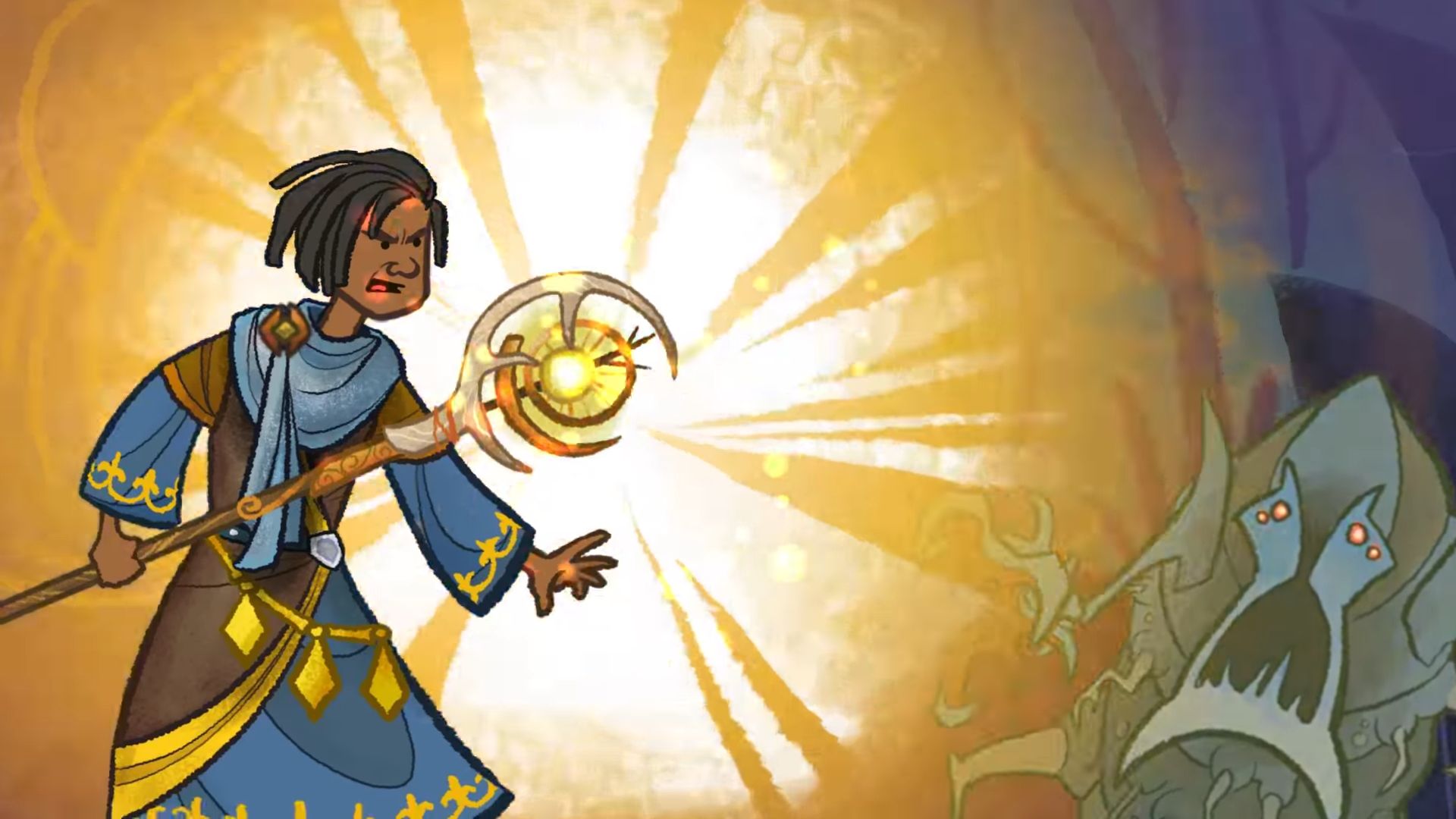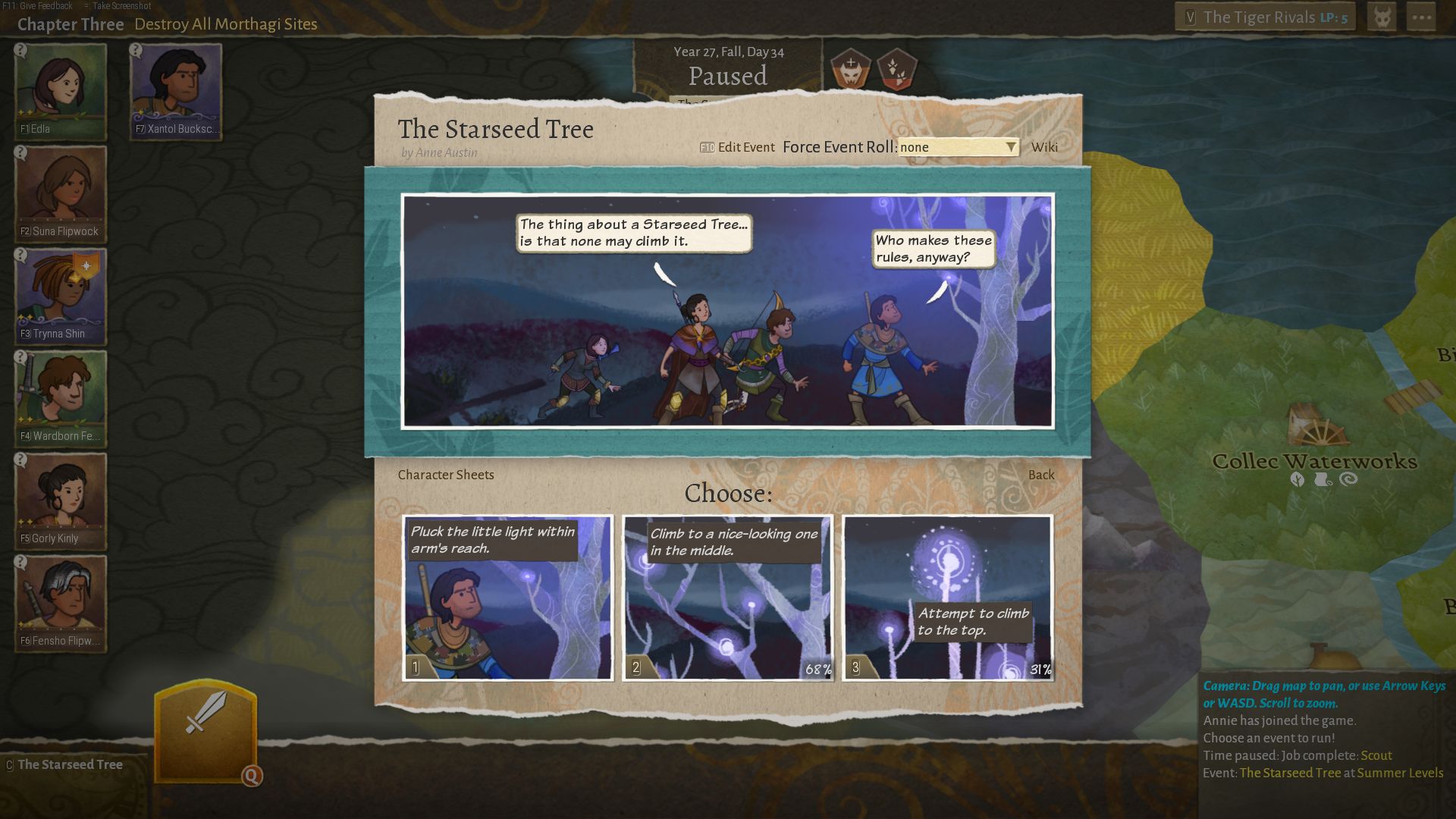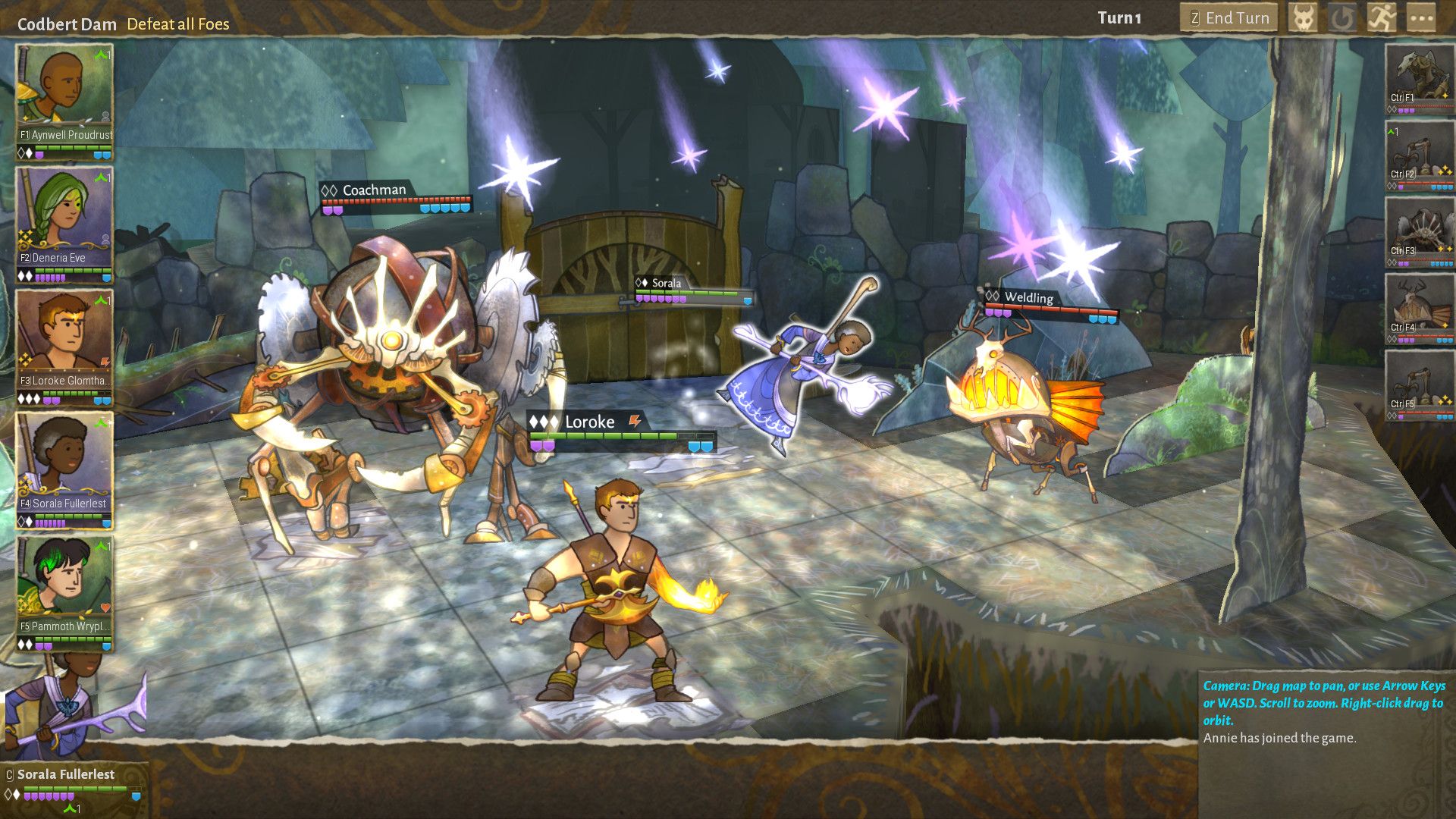
Over the past eighteen months, I've been running a pair of Dungeons & Dragons campaigns as a way to keep in touch with friends and colleagues who I've not been able to see in person. As a novice DM, it's been a steep learning curve. The complexities of storytelling and worldbuilding and combat design are all interwoven with the desires of my players, whose unpredictability brings each game to life. Wildermyth, which recently left early access into its 1.0 version, ties together all those ideas within a fantasy setting that makes you feel as though you're playing your very own homebrew tabletop game.
Wildermyth is a game about stories. Set within the pages of an unfinished tome of epic tales, the final chapters are yours to complete via a collection of would-be heroes, all of whom want to do something worthy of immortalizing. When an army of monsters finds its way into your village, or sentient machines begin staking a claim to the land, every character seems to acknowledge that a call to adventure of this kind of magnitude doesn't come along very often. From those humblest of beginnings stems a perfect format, as your band of adventurers sets out knowing exactly what's required of them to make those stories come to life.

But within the major narratives - those you might expect to hear a bard sing of in some ancient tavern - are dozens of other stories. Away from the fight, your characters have their own lives to lead. They grow old, fall in love, mourn old friends, lose beloved keepsakes, or just tell each other stories; each time Wildermyth turns a page, there's another outpouring of personality from both its surprisingly naturalistic dialogue and its charming character art. As you play, you might think that some of those stories belong to you - those of your perfectly crafted strategic approach or desperate, last-ditch critical strikes that save your entire campaign - but your characters lay claim to those moments as well, dramatizing their most daring escapades to win over new recruits.
When it comes to those grand deeds, the storybook elements do take a back seat, as conflict is resolved through relatively traditional turn-based combat, a playful papercraft art style never letting you forget the importance of narrative. The three classes available at the beginning of each campaign mean early battles are a simple affair; nimble hunters fire arrows at distant foes, while beefier warriors mop up damage in close combat. Most interesting is the magic-wielding mystic class, whose power resides in the ability to 'interfuse' with objects in the world. Fuse with a tree, for instance, and you can cause it to explode, showering an area in splintering shards of wood. That same tree, however, can also conjure roots and vines to grab an enemy and pin them in place. Over time, a mystic might learn more about specific elements, specializing in destructive fire magic or learning to wield stone or metal with deadly force.

Those branching combative possibilities might initially be most apparent in Wildermyth's magic users, but as a campaign progresses, every character will get their own chance to shine. For some, the process is gradual, with new abilities learned with each new level. For others, it's more drastic. As your party travels the world, they might stumble upon forgotten altars or solitary forest guardians. In one campaign, my hunter gained an explosive fire attack that works fantastically with my mystics, but in another, one of my warriors announced they'd eventually be leaving my party to become one with nature or something similarly wholesome. Narratively, it was a perfectly delivered, heart-in-mouth moment - as a towering, faceless, lord of the forest crouched over one of my party's most important members, I was terrified that I was about to see him crushed to death by a power beyond any of our understandings.
These events can provide a serious boon when it comes to etching your name in the annals of eternity, but they're also what truly shapes Wildermyth's most successful role-playing elements. In my experience of tabletop games, it's rarely the climactic fight with the big bad that shapes a player's idea of their character. Instead, it's any number of tiny interactions spread throughout a campaign that might last years, both in fiction and in real life. Wildermyth captures all of those - from the most throwaway remarks to the most reality-bending alteration of the self - just as effectively as any great tabletop-inspired CRPG, creating a party of characters that feel like they belong to you, but that change and grow organically, somehow seeming to own their own stories even while you play out the game on their behalf. It's a truly special bit of design and one that puts my own Dungeon Mastering skills to shame.
Wildermyth is out now on PC. Looking for some more hidden gems? Check out our list of new indie games 2021.
Weekly digests, tales from the communities you love, and more

I'm GamesRadar's Managing Editor for news, shaping the news strategy across the team. I started my journalistic career while getting my degree in English Literature at the University of Warwick, where I also worked as Games Editor on the student newspaper, The Boar. Since then, I've run the news sections at PCGamesN and Kotaku UK, and also regularly contributed to PC Gamer. As you might be able to tell, PC is my platform of choice, so you can regularly find me playing League of Legends or Steam's latest indie hit.


